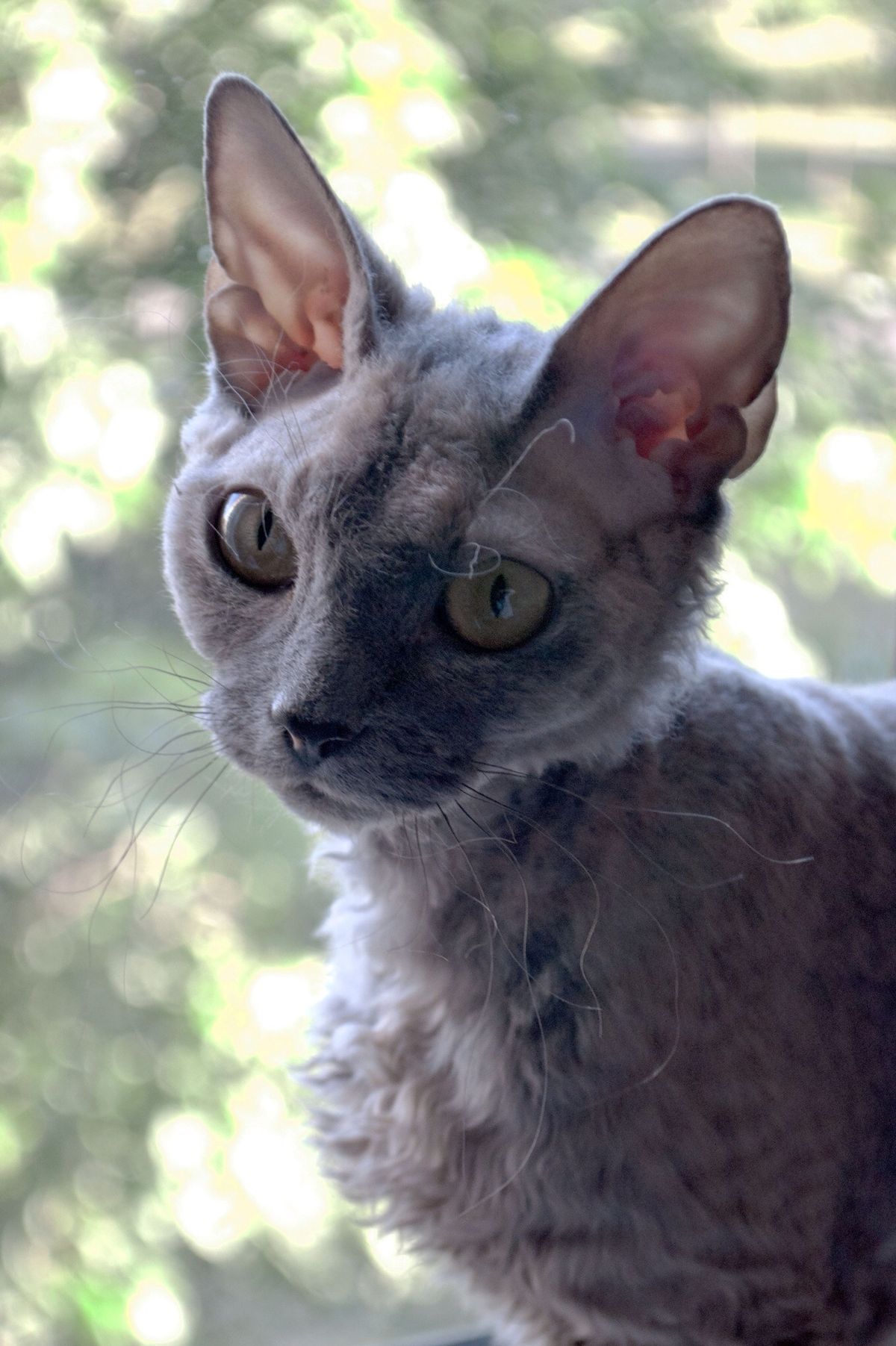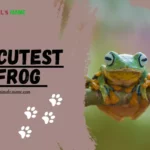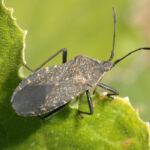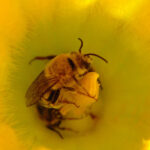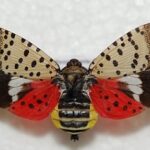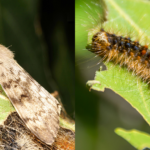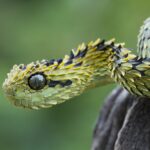The Devon Rex is a remarkable cat breed that has captivated the hearts of cat lovers around the world. This unique feline is known for its distinct appearance and playful personality. In this blog post, we will explore the history, facts, size, habitat, and classification of the Devon Rex.
The history of the Devon Rex dates back to the 1960s, when a stray kitten with curly fur was found in Devon, England. This kitten, named Kirlee, became the foundation for the breed. The Devon Rex is the result of a natural genetic mutation, which gives it its signature curly coat. These cats are medium-sized, with slender bodies and large ears. Despite their small size, they possess extraordinary agility and grace.
Devon Rex cats are known for their friendly and affectionate nature. They thrive on human companionship and love to be the center of attention. Their playful and mischievous demeanor often brings joy and laughter to their owners. In terms of habitat, Devon Rex cats are adaptable and can live comfortably in various environments, including apartments and houses.
In the classification of animals, the Devon Rex belongs to the Felidae family, which includes other domestic cats and larger wild felines such as lions and tigers. Within the Felidae family, the Devon Rex is categorized as a domestic breed. These cats are a fascinating example of the diversity and beauty found among the many animal species that share our planet.
Remember, we already have an article on 155+ animal names that you can explore on our blog. Stay tuned for more exciting posts on mammals and other incredible creatures!
History of Devon Rex
The Devon Rex is a unique and fascinating animal with an interesting history. This breed of cat is known for its distinctive appearance, with large ears, curly fur, and an elongated face. But where did the Devon Rex come from? Let’s take a journey back in time to find out.
The origins of the Devon Rex can be traced back to Devon, England, in the 1950s. It all started when a stray cat named Kirlee was discovered by a woman named Beryl Cox. Kirlee had unusual curly fur, which caught Beryl’s attention. She decided to breed Kirlee with other cats in the hope of producing more kittens with this curly coat. Through careful breeding, Beryl was successful in creating a new breed that she named the Devon Rex.
Once the Devon Rex breed was established, it gained popularity worldwide. People were fascinated by its unique appearance and charming personality. In the years that followed, breeders focused on preserving and improving the breed’s characteristics. Today, the Devon Rex is recognized as a distinct breed by various cat associations and is beloved by cat enthusiasts all over the world.
In conclusion, the Devon Rex is a special breed of cat that originated in Devon, England, in the 1950s. Thanks to the efforts of a dedicated breeder named Beryl Cox, this unique cat with its curly fur and endearing traits has become a beloved pet in many households. Whether you’re a cat lover or not, it’s hard not to be captivated by the history and charm of the Devon Rex.
Importance of Devon Rex
The Devon Rex is truly a remarkable animal with many special qualities. One of the main reasons why this breed is important is because of its unique appearance. With large ears, short curly hair, and big eyes, the Devon Rex stands out from other cats. This makes them popular among cat lovers who are looking for a distinctive and charming pet.
Another reason why Devon Rex cats are important is because of their friendly and affectionate nature. They love to be around people and are known for being great companions. Their playful and energetic personality makes them perfect for families or individuals who want a loving and active pet. Having a Devon Rex can bring happiness and joy to anyone’s life.
Lastly, the Devon Rex breed is important because of its hypoallergenic fur. This means that people who are usually allergic to cats may be able to tolerate the Devon Rex. Their unique hair texture reduces the amount of allergens that are usually found in cat fur. This makes it possible for more people to experience the joy of owning a cat, even if they have allergies.
In conclusion, the importance of the Devon Rex cannot be overstated. Its distinct appearance, friendly nature, and hypoallergenic qualities make it a valuable and beloved pet. Whether you are a cat lover or someone looking for a new furry friend, the Devon Rex is definitely an animal worth considering.
Amazing Facts About Devon Rex
1. The Devon Rex is a breed of domestic cat known for its unique appearance and curly fur.
2. This breed originated in England during the 1960s when a stray curly-coated kitten named Kirlee was found in Devon.
3. The Devon Rex has large ears set low on its head, giving it an elf-like or alien-like appearance.
4. These cats have a slender and agile body, with long legs and a long, whip-like tail.
5. Devon Rex cats have short, soft, and rexed (curled) fur that lacks an outer layer, making it feel warm and pleasant to touch.
6. Due to their minimal fur, Devon Rex cats are generally considered hypoallergenic and are known to cause fewer allergies in people who are sensitive to cat dander.
7. Their curly coat requires minimal grooming, as it doesn’t easily mat or tangle.
8. Devon Rex cats come in various coat colors and patterns, including solid, tabby, tortoiseshell, and colorpoint.
9. These cats are known for their playful and mischievous nature, often engaging in acrobatic leaps and high jumps.
10. Devon Rex cats are highly intelligent and curious, making them excellent problem solvers and escape artists.
11. They are social animals that enjoy the company of humans and other pets, making them suitable for families and multi-pet households.
12. The Devon Rex is a relatively active breed that enjoys interactive play and mental stimulation, so providing toys and engaging activities is essential for their well-being.
13. While they may enjoy the outdoors, Devon Rex cats are not typically suited for prolonged outdoor exposure due to their thin coat, making them more suitable as indoor pets.
14. This breed is known for its friendly and affectionate personality, often seeking lap time and cuddles from their owners.
15. Despite their unique appearance, Devon Rex cats are generally healthy, although they can be prone to specific health conditions such as hypertrophic cardiomyopathy and patellar luxation. Regular veterinary check-ups are important to ensure their overall well-being.
Can we keep Devon Rex as our Pet?
The Devon Rex is a lovely feline breed that many people consider keeping as a pet. However, it’s important to note that the Devon Rex is not extinct. These friendly cats are still very much alive and well and can indeed be kept as pets. They have unique curly fur, large ears, and a playful nature that makes them a popular choice for those looking for a furry companion.
Although the Devon Rex is not extinct, it’s worth mentioning that some animals have sadly become extinct over time. Extinction happens when a particular species completely disappears from the Earth. Whether it’s due to natural causes or human actions, the loss of an animal species can have a significant impact on our planet’s biodiversity.
When an animal becomes extinct, it means we can no longer keep them as pets or see them in the wild. It’s important to understand that we need to protect and take care of the animals that are still alive to prevent them from going extinct. By learning about different animal species and their habitats, we can help create a world where pets and wildlife thrive together.
In conclusion, the Devon Rex is not extinct, and they can indeed be kept as pets. However, it’s crucial to be aware of the impact human actions can have on animal species and strive to protect and preserve them. Together, we can ensure a future where both pets and wildlife flourish.
Size of Devon Rex
The Devon Rex is a small-sized animal that is known for its unique appearance. It is known for having a slender body with long legs and a small head. The average height of a Devon Rex is about 10 to 12 inches, which is smaller compared to other cat breeds. Their bodies are also quite lightweight, weighing around 5 to 10 pounds. So, they can easily fit into most homes and are great for people who prefer a smaller-sized pet.
One of the notable features of the Devon Rex is its large and prominent ears. These ears are quite big in size, which makes them even more distinctive. They can be around 2 to 3 inches tall and are set low on their head. Due to their large ears, they may seem even bigger than they actually are.
Despite their small size, Devon Rex cats are known for their active and playful nature. They love to explore their surroundings and engage in various activities. Their small frame and light body make them agile and quick, allowing them to easily jump and climb around the house. So, even though they may be small, they have big personalities and bring lots of energy and excitement into a home.
Habitat of Devon Rex
The habitat of the Devon Rex animal is similar to that of most domesticated cats. These cats are typically kept as pets and live inside people’s homes. They are not suited for living in the wild as they lack the skills and adaptations necessary for survival.
Inside a home, a Devon Rex will typically have access to different rooms and areas. They enjoy exploring their surroundings and will often climb onto furniture or shelves to get a better view. They also appreciate having cozy resting spots such as beds or blankets where they can curl up and sleep.
Devon Rex cats thrive in a comfortable and warm environment. They cannot tolerate cold temperatures well and may seek out warm places to snuggle, like next to a heat source or in a sunny spot by a window. It’s important for their habitat to have appropriate temperature control to keep them comfortable and healthy.
In summary, the habitat of a Devon Rex cat is primarily inside people’s homes. They enjoy exploring and lounging in various parts of the house. It’s crucial to provide them with warmth, cozy resting spots, and a secure environment where they can feel safe and loved.
Evolution of Devon Rex
The evolution of Devon Rex animals has a fascinating story. It all started long ago, when cats roamed the earth. These cats had a average fur, like most of the cats we see today. But then, something incredible happened that changed the life of one particular cat.
In the 1960s, a normal domestic cat in Devon, England, gave birth to a kitten with a unique mutation. This kitten had incredibly curly and wavy hair, unlike any other cat. People were amazed by its unusual appearance and decided to breed more cats like it. They hoped to create a whole new breed, and that’s how the Devon Rex came into existence.
As time passed, these curly-haired cats began to multiply and spread around the world. Breeders noticed that these cats also had big ears, slender bodies, and charming personalities. They quickly became popular pets due to their adorable appearance and loving nature. The Devon Rex cats definitely stood out from the crowd.
Nowadays, the Devon Rex is recognized as a distinct breed and has many admirers. These cats are adored for their unique and beautiful curls, making them look like little aliens from outer space. Their evolution shows us that sometimes, unexpected and wonderful things can happen in nature, giving rise to incredible creatures like the Devon Rex.
Classification of Devon Rex
The Devon Rex animal belongs to the cat family and has its own classification. This cool and unique breed of cat is known for its curly fur and big, beautiful eyes. Let’s learn more about how the Devon Rex is classified!
The Devon Rex belongs to the Animalia kingdom, which is the first and largest group of living organisms. Next, it falls into the Chordata phylum, which includes animals with a backbone. Then, it is classified under the Mammalia class, as it is a warm-blooded, furry animal that gives birth to live babies. The Devon Rex is further categorized under the Felidae family, which includes all the different types of cats we know.
Within the Felidae family, the Devon Rex belongs to the Felis genus, which includes small to medium-sized cats. Finally, it is classified under the Felis domesticus species, also known as the domestic cat. This means that the Devon Rex is a domesticated cat breed that many people choose to have as a pet in their homes.
In conclusion, the Devon Rex is classified as an animal in the kingdom Animalia, phylum Chordata, class Mammalia, family Felidae, genus Felis, and species Felis domesticus. It is a special breed of cat that stands out due to its curly fur and is loved by many people as a pet.
Different Types of Devon Rex
1. Unique Appearance:
The Devon Rex is known for its distinctive features, including a short and curly coat, large ears, and a slender body. Their appearance is often described as elf-like, making them stand out from other cat breeds.
2. Playful Nature:
Devon Rex cats are highly energetic and love to play. They enjoy interactive toys and games, often amusing their owners with their playful antics. Their fun-loving nature ensures they bring lots of joy and entertainment to any household.
3. Friendly and Social:
These cats have a friendly and sociable nature. They tend to get along well with other pets and enjoy the company of their human family members. Their affectionate temperament makes them a popular choice for families and individuals seeking a loving companion.
4. High Intelligence:
Devon Rex cats are known for their intelligence and curiosity. They quickly learn new tricks and can even be trained to perform simple tasks. Their cleverness adds an extra level of interaction and amusement to their already playful nature.
5. Easygoing and Adaptable:
Unlike some cat breeds, Devon Rex cats are generally easygoing and adaptable to new environments. They tend to adjust well to changes in routine or living situations, which makes them suitable for households that experience frequent changes or travel.
6. Low-Shedding Coat:
The unique coat of the Devon Rex is often perceived as hypoallergenic since it sheds less compared to other cat breeds. While no cat is truly hypoallergenic, their low shedding can be beneficial for individuals with allergies or sensitivities to pet dander.
7. Affectionate Cuddlers:
Devon Rex cats enjoy being close to their owners and are often referred to as “velcro cats” due to their tendency to cling onto your lap or shoulder for cuddles. They appreciate being petted, hugged, and snuggled, making them ideal companions for those seeking affectionate feline friends.
8. Vocal Communicators:
With their wide range of vocalizations, Devon Rex cats are excellent communicators. They use various meows, purrs, and trills to express their needs, desires, and emotions. Their ability to vocalize adds another layer of interaction and understanding between them and their owners.
9. Playfully Mischievous:
Devon Rex cats have a mischievous side to their playful nature. They may explore every nook and cranny of your home, playfully batting objects off tables, or even stealing small items for their amusement. Their mischievous behavior keeps their owners entertained and on their toes.
10. Devoted Companions:
Perhaps one of the most endearing qualities of Devon Rex cats is their unwavering loyalty and devotion to their human family. They form deep bonds and constantly seek their owners’ companionship, making them highly valued and cherished pets.
Geographical Presence of Devon Rex
The Devon Rex is a unique and special breed of cat. It is found in many different regions around the world. These cats originated in England, specifically in the county of Devon, hence their name. However, they are now found in many countries across the globe, including the United States, Canada, Australia, and various European countries.
Devon Rex cats have distinctive curly hair, which sets them apart from other breeds. They are known for their playful and affectionate nature, making them a popular choice for pet owners. Their friendly and sociable personality makes them great companions for both individuals and families.
However, there are some regions where the Devon Rex is not commonly found. These cats are not native to tropical regions, as their curly hair can cause discomfort in hot climates. Therefore, you would be less likely to find Devon Rex cats in countries with a warm, tropical climate, such as those in Central and South America, Africa, or Southeast Asia.
In conclusion, while the Devon Rex cat is originally from England, it is now found in various regions across the world. These cats are loved for their unique appearance and friendly temperament. However, they are not commonly found in tropical regions due to their curly hair causing discomfort in hot climates.
Scientific Name of Devon Rex
The scientific name of the Devon Rex animal is Felis catus. These extraordinary cats are known for their unique appearance and friendly personalities. With their slender bodies and large ears, they stand out among other cat breeds.
The Devon Rex cats have a curly and soft coat that sets them apart from other breeds. This coat is a result of a genetic mutation, making them even more fascinating. Their large, expressive eyes add to their charming appearance, capturing the hearts of many cat lovers.
Devon Rex cats are also known for their playful and sociable nature. They enjoy interacting with humans and other animals, making them great companions. Their intelligence and curiosity often lead them to explore their surroundings, making them adaptable and adaptable to various environments.
In conclusion, the scientific name for the Devon Rex cat is Felis catus. These cats are recognized for their distinct appearance, including their curly coat and large ears. They are also known for their friendly and playful nature, making them a favorite choice among many cat enthusiasts.
Diet of Devon Rex
The diet of the Devon Rex animal plays a crucial role in keeping it healthy and strong. These lovely cats need a nutritionally balanced diet just like any other pet. They require a mixture of proteins, fats, vitamins, and minerals to thrive.
The first paragraph can talk about the general diet of a Devon Rex. For example, it can mention that a variety of high-quality cat food should make up the majority of their diet. This could be commercial wet or dry food that is specifically formulated for cats, as it contains the necessary nutrients to support their overall well-being.
Additionally, it is important to include some fresh and cooked meat in their diet. Chicken, fish, and small amounts of beef or turkey can be given to them as a treat or added to their regular food. However, seasonings or additives should be avoided, as they can be harmful to their health. It’s important to always consult with a veterinarian to ensure that the chosen diet meets the specific needs of a Devon Rex, as their dietary requirements may differ from other cat breeds.
The last paragraph can address hydration and the importance of water. It can explain that like humans, cats also need water to survive. Fresh, clean water should always be available for them to drink. Some cats may prefer running water, so providing them with a cat water fountain could encourage them to stay hydrated.
Overall, a nutritious diet that includes high-quality cat food, fresh meat, and access to clean water is essential for the health and well-being of a Devon Rex animal. By offering the right food and ensuring they stay hydrated, we can help these delightful cats lead happy, healthy lives.
Locomotion of Devon Rex
The Devon Rex animal has a unique way of moving around called locomotion. These animals have a very agile and active nature, which is reflected in the way they move. When the Devon Rex walks, it uses all four of its legs to propel itself forward. Its steps are light and quick, making it look like it’s almost dancing as it moves around. Their strong hind legs help them to jump high and climb effortlessly. They can jump onto furniture or even onto their owner’s shoulder with ease.
When it’s time to run, the Devon Rex can really pick up speed! With its nimble body and strong muscles, it can sprint across the room in just seconds. It is also skilled at changing directions swiftly, making it hard to catch when playing chase. These cats are very flexible and can squeeze through tight spaces, almost like they are made of rubber. This helps them to explore every nook and cranny in their environment. The locomotion of Devon Rex is a fascinating sight to behold, as they gracefully move around with speed and agility.
Social and Sexual Behaviour of Devon Rex
The Devon Rex is a friendly and playful cat breed known for its unique appearance and sociable nature. These cats enjoy the company of humans and get along well with other pets. They have a strong desire to be part of the family and may follow their owners around the house, looking for attention and affection. The Devon Rex is a social animal that thrives on human companionship.
When it comes to sexual behavior, the Devon Rex is just like any other cat. They become sexually mature at around six to nine months of age. During this time, the males may exhibit more territorial behavior and might mark their territory with urine. Females, on the other hand, may vocalize or show signs of restlessness when they are in heat. It is important for pet owners to have their cats spayed or neutered to avoid unwanted litters and help prevent certain health issues.
In summary, the Devon Rex is a sociable and loving cat that enjoys being around people and other animals. They seek attention and companionship from their owners and can make great family pets. However, like any cat, they also have sexual behaviors that should be managed responsibly to promote their well-being and prevent unwanted offspring.
Reproduction and Lifecycle of Devon Rex
The Devon Rex animal has a unique reproduction and life cycle. Let’s learn more about it!
Reproduction is the process by which animals make babies. In the case of the Devon Rex, the female cat, called a queen, becomes ready to mate when she is around 8 to 10 months old. When a male cat, called a tom, comes near the queen, they engage in mating. The tom’s sperm fertilizes the queen’s eggs inside her body. After this happens, the queen will usually give birth to a litter of kittens after around 63 days of pregnancy.
Once the kittens are born, they are very tiny and helpless. Like other cats, Devon Rex kittens need their mother’s milk for the first few weeks of their life. As they grow, they start exploring their surroundings and learn to walk and play. The kittens depend on their mother for nourishment, comfort, and protection. They will stay with their mother until they are around 12 weeks old. During this time, they also learn important social skills from their mother and siblings.
As the kittens get older, their bodies change. They develop their adult fur, which can be curly or wavy for the Devon Rex cat. As they reach maturity, around 9 to 12 months old, they become capable of reproducing and having their own kittens. And so, the life cycle of the Devon Rex continues. From being a tiny, dependent kitten, they grow into adults that can bring new life into the world by having their own offspring.
Threats to Devon Rex
The Devon Rex animal faces several threats in its natural habitat. One major threat is habitat loss. As humans continue to expand their cities and towns, the areas where the Devon Rex lives are being destroyed. This means there is less space for them to find food and build their homes. Without a proper habitat, the Devon Rex population may decline.
Another threat to the Devon Rex is the danger of being hunted or captured by humans. Some people see these animals as exotic pets and try to catch them illegally. This not only disrupts their natural way of life but also puts them at risk of being injured or killed during capture. It is important for us to remember that animals should be left in their natural habitats and not taken away from where they belong.
Lastly, pollution also poses a threat to the Devon Rex. Chemicals and pollutants in the water, air, and soil can harm these animals and their food sources. The toxins can weaken their immune systems, making them more vulnerable to diseases and infections. By reducing pollution and using eco-friendly practices, we can help protect the Devon Rex and ensure a healthy environment for them to thrive.
In order to protect the Devon Rex, it is crucial that we take action against these threats. We should strive to preserve their natural habitats and create protected areas where they can live safely. Additionally, educating others about the importance of conservation and responsible pet ownership can help reduce the illegal trade and capture of these animals. By working together, we can ensure a bright future for the Devon Rex and other unique creatures that share our planet.
Population of Devon Rex
The population of Devon Rex cats is not known for certain, but it is believed to be relatively small. An assumed figure suggests that there may be around 5,000 to 10,000 Devon Rex cats around the world. These cats are known for their unique curly fur, which is a result of a genetic mutation.
If the Devon Rex cat were to become extinct, it would mean that there would be no more of these cats left in the world. Extinction happens when a species no longer has any living members. This can occur for various reasons, such as habitat loss, disease, or human activities.
It is important to protect and preserve the Devon Rex cat population, as they contribute to the diversity of cat breeds. By ensuring their well-being and not engaging in activities that harm their natural environment, we can help prevent their extinction and maintain a healthy population of these unique cats.
Conclusion
The Devon Rex is a unique and fascinating animal. Its history and special features make it a popular pet for many animal lovers. This blog post has provided important information about the Devon Rex, including its facts, size, habitat, and classification.
One interesting fact about the Devon Rex is that it has a curly coat of fur, which sets it apart from other cat breeds. These adorable animals are known for their playful and affectionate nature, making them great companions for families. Despite their small size, they have a big personality and love to be around people.
The Devon Rex is classified as a domestic cat and can be found in various habitats around the world. They are known to adapt well to different environments, which is one reason why they are popular pets. Their unique appearance and lovable traits make them a favorite among animal enthusiasts.
In conclusion, the Devon Rex is a fascinating animal with a rich history. Their curly fur, small size, and friendly personality make them a wonderful addition to any family. Whether you are a cat lover or simply curious about animal breeds, the Devon Rex is definitely an animal worth learning about. So next time you come across this name, remember the unique and delightful qualities of the Devon Rex.
Frequently Asked Questions about Devon Rex (FAQ’s)
Q: What is a Devon Rex cat?
A: The Devon Rex is a breed of domestic cat known for its curly coat, slender body, and unique facial features.
Q: Where does the Devon Rex cat originate from?
A: The Devon Rex cat originated in England during the 1960s.
Q: Are Devon Rex cats hypoallergenic?
A: Devon Rex cats are often considered hypoallergenic as they produce fewer allergenic proteins compared to other cat breeds, but individual reactions may still vary.
Q: How big do Devon Rex cats get?
A: Devon Rex cats are medium-sized cats, typically weighing between 5 to 10 pounds.
Q: What colors and patterns can Devon Rex cats come in?
A: Devon Rex cats can come in a variety of colors and patterns, including solid, tabby, tortoiseshell, and pointed.
Q: Do Devon Rex cats require a lot of grooming?
A: Devon Rex cats have short, curly fur that requires minimal grooming. Regular brushing and occasional bathing are usually sufficient.
Q: Are Devon Rex cats good with children and other pets?
A: Devon Rex cats are generally sociable and get along well with children and other pets if properly introduced and socialized.
Q: Are Devon Rex cats prone to any health issues?
A: Devon Rex cats are generally healthy, but they may be more susceptible to certain conditions such as hypertrophic cardiomyopathy and patellar luxation.
Q: How long do Devon Rex cats live?
A: On average, Devon Rex cats have a lifespan of 10 to 15 years, but with proper care, they can live even longer.
Q: Do Devon Rex cats need a lot of exercise?
A: Devon Rex cats are active and playful, but they do not require as much exercise as some other cat breeds. Regular playtime and interactive toys should be sufficient to keep them entertained.
Q: Can I keep a Devon Rex cat as an indoor-only pet?
A: Yes, Devon Rex cats can be kept as indoor-only pets. However, it’s important to provide them with mental stimulation and playtime to prevent boredom.
Q: Are Devon Rex cats easy to train?
A: Devon Rex cats are known for their intelligence and trainability. They can learn tricks and even use litter boxes or scratching posts with proper training.
Q: Do Devon Rex cats shed a lot?
A: Devon Rex cats have a very fine and curly coat that sheds less than other cat breeds. However, some minimal shedding may still occur.
Q: How active are Devon Rex cats?
A: Devon Rex cats are moderately active and enjoy playing, climbing, and exploring their surroundings. However, they also appreciate moments of relaxation.
Q: How can I find a reputable Devon Rex breeder?
A: To find a reputable Devon Rex breeder, you can consult cat breed associations, attend cat shows, or search online directories. It’s important to research and visit the breeder beforehand to ensure ethical practices.

Hey there, I’m Tyler Swan! I worked as an Animal Care Specialist at Neuralink and completed my education at the University of California, Davis. Animals have always fascinated me, so I chose to study and work with them.
In my job, I take care of animals and make sure they’re healthy and happy. I’ve had cool roles like Lab Manager and Senior Research Assistant at Mitloehner Lab, where I’ve learned much about animals.
I’m not just about work, though. I love animals so much that I write articles about them! I enjoy sharing fun and interesting facts about our furry and feathered friends.
If you ever want to know more about animals or need help with animal info, ask! I’m here to make learning about animals easy and fun, just like chatting with friends.

